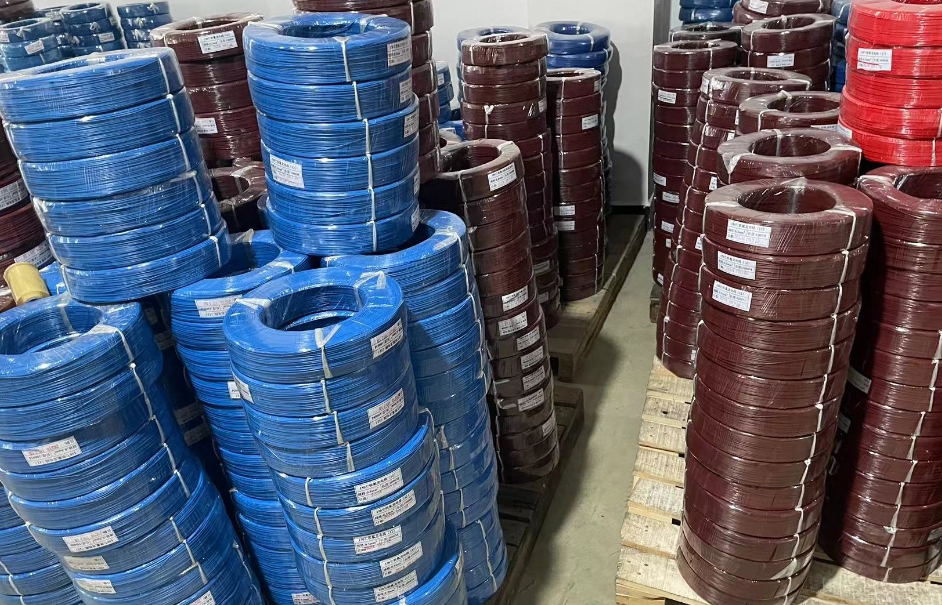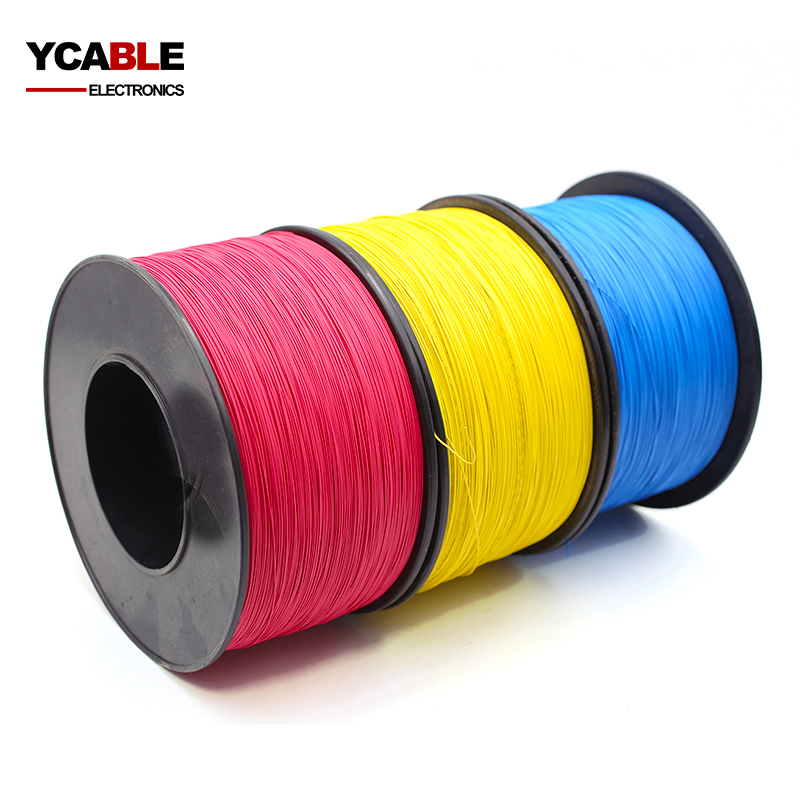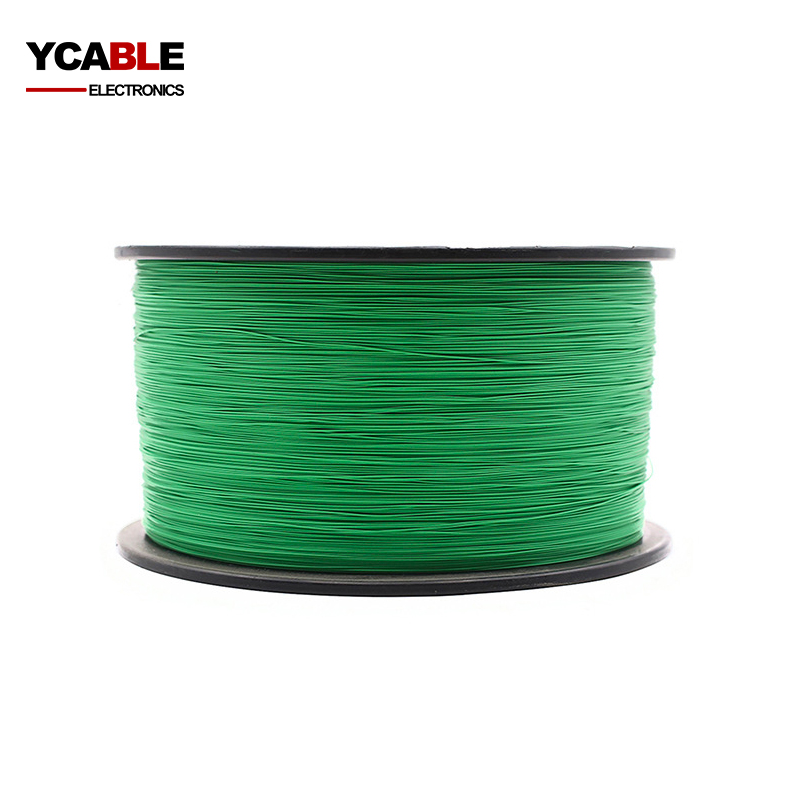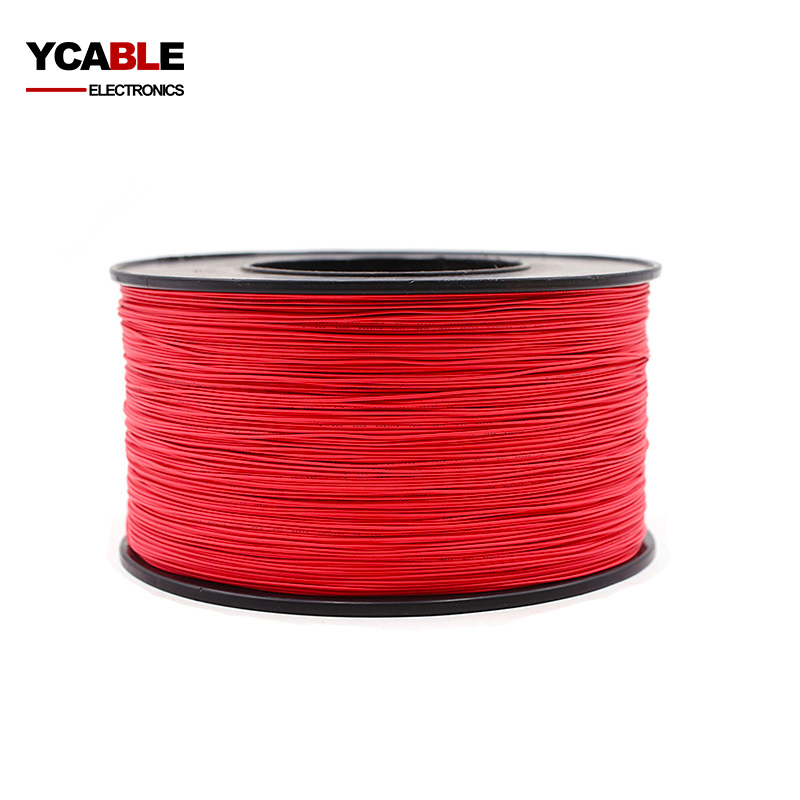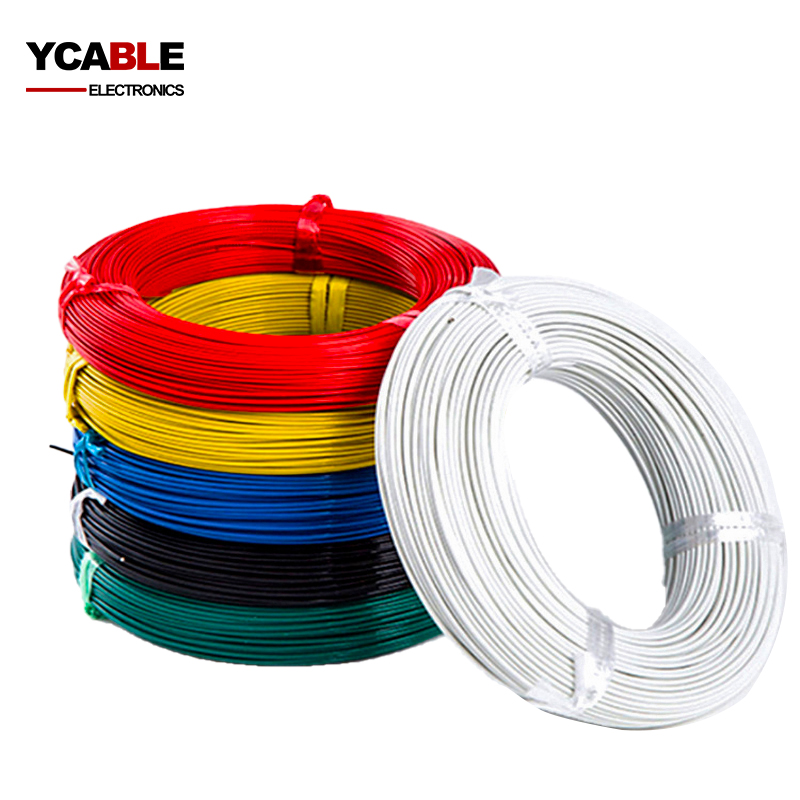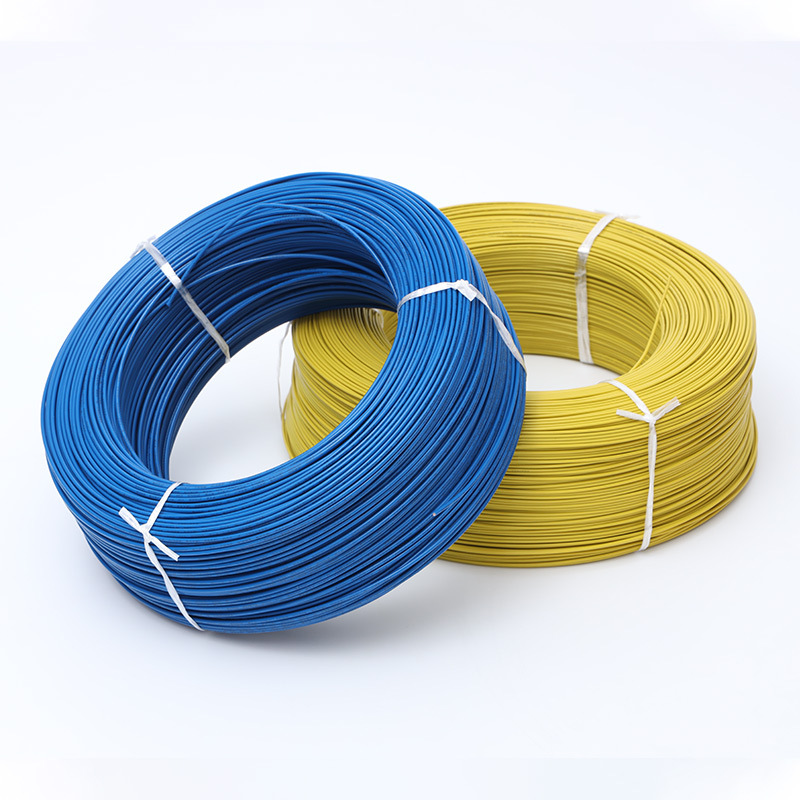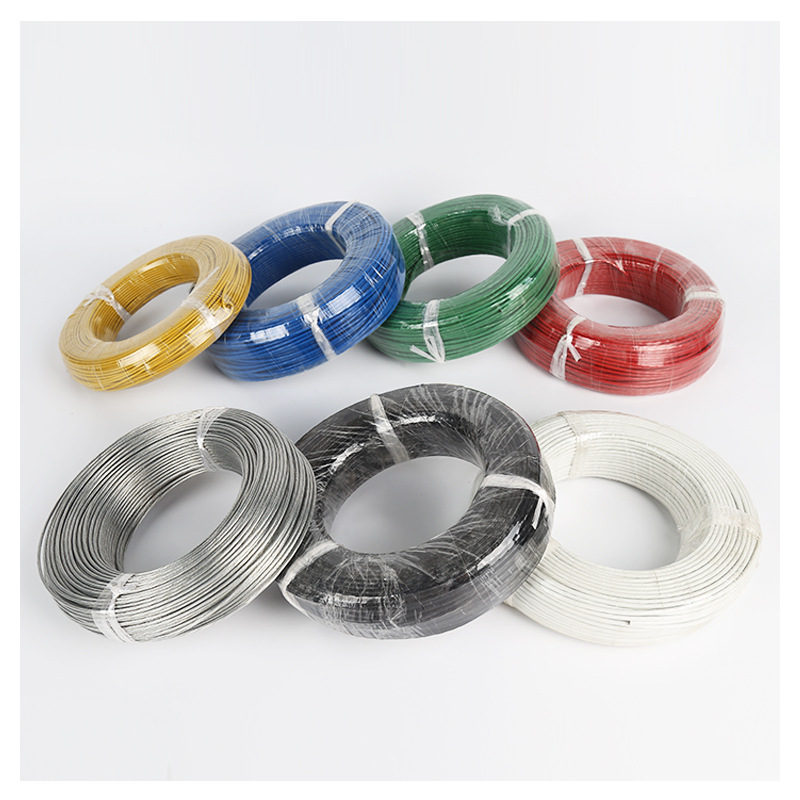ETFE wire
ETFE wire
Item Number:ETFE wire
- Model: High Temperature Teflon ETFE wire
- Size: 0 GA-36 Gauge
- Color: Transparent, black, green, red, yellow, white, Custom
- Insulation: ETFE 150℃
- Shield: None
- Jacket: ETFE
- Packing: 305m, 610m, 2000, 4000m, Custom
- OD: According to the standard/Custom
- Conductor Material: Tinned copper, silver plated copper, bare copper
- Drain wire: None
Environmental Specifications:
Environmental Space – Non-plenum
Flame Test Method – VW-1 FT-2
Installation Temperature – -40 °C to +250 °C
Operating Temperature – -40 °C to +250 °C
Temperature Rating – 200 °C / 250 °C
General Specifications:
Cable Type
High temperature ETFE Teflon wire
Cable Component Type
ETFE
Conductor Gauge, singles
0AWG-36AWG
Conductor Type, singles
Solid/Stranded Single Core Wire
Characteristics:
- High temperature ETFE Tefon products:
- Temperature resistance 150/200/250 degrees
- Oil resistance, acid, and alkali resistance
- Virtually eliminates skin irritation
- Color stable at elevated temperatures
- Suitable for UV, ozone, or moisture exposure
- Suited for liquid-immersed/High temperature applications
- Suitable for applications to -40°C~250°C
ETFE wire is a very good high temperature Teflon wire, ETFE Teflon material is very stable, It can be used in many harsh environments for a long time, and the wire made of ETFE Teflon is thinner than the high temperature wire made of other materials.
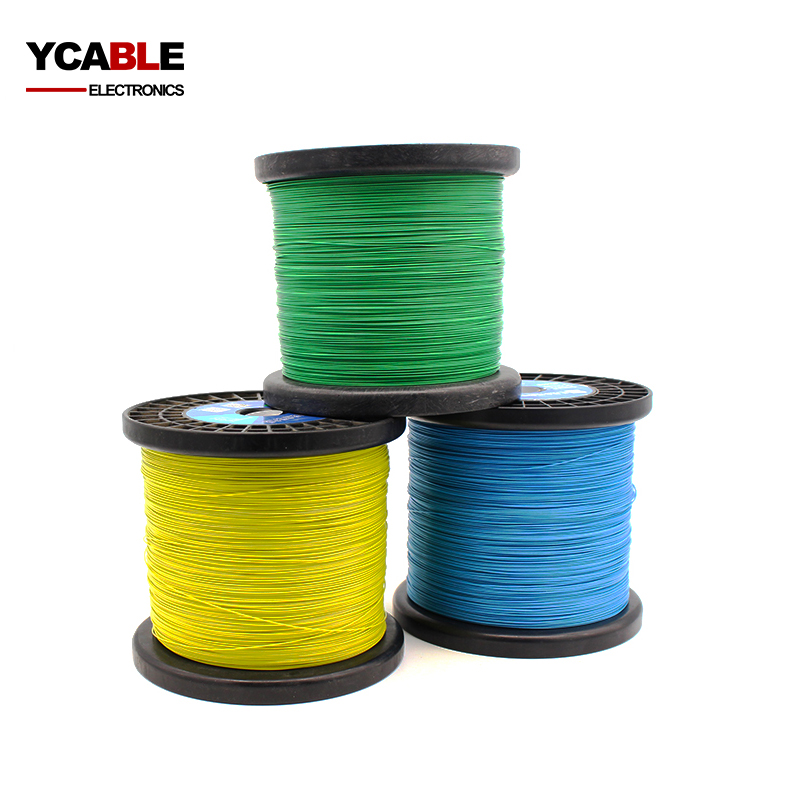

Categories
ETFE Teflon Wire
| ETFE Wire Specifications | |||||
| AWG | Conductor structure number/wire diameter(mm) | Insulation thickness (mm) | Average outer diameter(mm) | Conductor DC resistance at 20 ℃ (Ω/km) | Package length (m) |
| 10 | 37 × 0.43 | 0.33 | 3.67 | 3.546 | 305 |
| 12 | 19 × 0.49 | 0.33 | 3.11 | 5.64 | 305 |
| 14 | 19 × 0.37 | 0.33 | 2.51 | 8.96 | 305 |
| 16 | 19 × 0.30 | 0.33 | 2.16 | 14.6 | 305 |
| 17 | 19 × 0.26 | 0.33 | 1.96 | 18.3 | 305 |
| 18 | 19 × 0.23 | 0.33 | 1.81 | 23.2 | 305 |
| 20 | 19 × 0.20 | 0.33 | 1.61 | 36.7 | 305 |
| 20 | 1 × 0.80 | 0.33 | 1.46 | 35.2 | 305 |
| 22 | 19 × 0.16 | 0.33 | 1.46 | 59.4 | 610 |
| 22 | 1 × 0.65 | 0.33 | 1.31 | 56.4 | 610 |
| 24 | 7 × 0.20 | 0.33 | 1.26 | 94.2 | 610 |
| 24 | 1 × 0.50 | 0.33 | 1.16 | 89.3 | 610 |
| 26 | 7 × 0.16 | 0.33 | 1.14 | 150 | 610 |
| 26 | 1 × 0.40 | 0.33 | 1.06 | 143 | 610 |
| 28 | 7 × 0.12 | 0.33 | 1.02 | 239 | 610 |
| 28 | 1 × 0.32 | 0.33 | 0.98 | 227 | 610 |
| 30 | 7 × 0.10 | 0.33 | 0.96 | 381 | 610 |
| 30 | 1 × 0.254 | 0.33 | 0.914 | 361 | 610 |
Description
What is ETFE wire?
ETFE, an abbreviation for Ethylene Tetrafluoroethylene, is a fluorine-based plastic used in insulating wire and cable products. Known for its robust corrosion resistance and mechanical strength, ETFE is often associated with its commercial name, Tefzel, a trademark of Teflon. Similar to Teflon, ETFE boasts nonstick properties.
ETFE distinguishes itself from Polytetrafluoroethylene (PTFE wire) by being markedly stronger and possessing high chemical resistance. It is particularly well-suited for applications where durability is crucial, especially in environments subjected to high temperatures and chemical exposure. ETFE is frequently preferred over FEP or PTFE owing to its outstanding mechanical strength. It demonstrates excellent heat-age characteristics and can endure high-voltage conditions. ETFE is available in various standard Mil-W-22759 (Mil-Spec hook-up wire) and Mil-C-27500 (Mil-Spec multi-conductor cable) configurations.
In the domain of insulated wires and cables, ETFE, or Ethylene Tetrafluoroethylene copolymer, offers impressive material toughness, electrical properties, and resistance to heat, flame, and chemical radiation.
Key Applications of ETFE Wire and Cable:
- Aviation Wiring: ETFE wire is used extensively in the aviation industry for its resilience and reliability.
- Aerospace Wiring: In aerospace applications, ETFE's strength and resistance to extreme conditions are invaluable.
- Nuclear Cables: Its robustness makes it suitable for the demanding environments of nuclear applications.
- Electronics Wiring: ETFE insulated wire is a preferred choice in electronics for its durability and electrical properties.
- Medical Wiring: In medical equipment, ETFE's reliability and resistance to chemicals and heat make it ideal.
- Appliance Wiring: ETFE is also used in various household and commercial appliances for its robust characteristics.
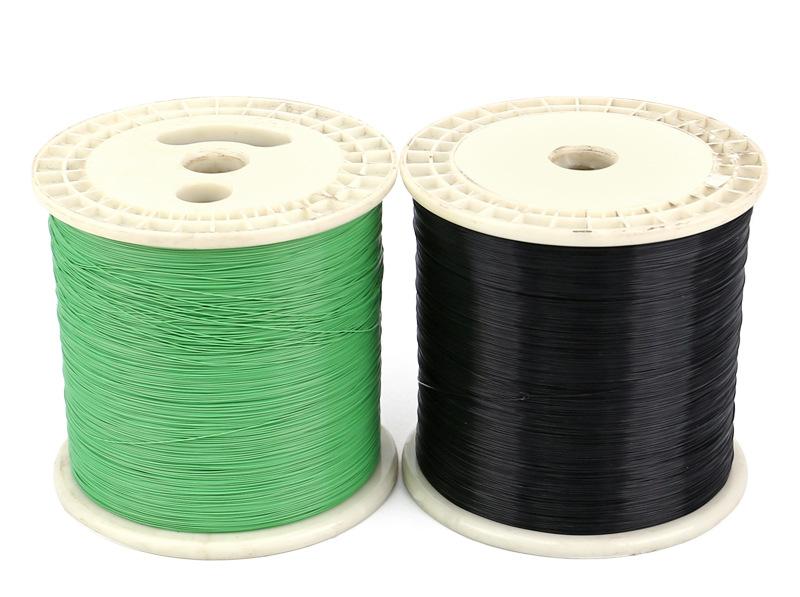
ETFE versus PTFE in High-Temperature Teflon Wire Applications
In the realm of high-temperature Teflon wire, PTFE and ETFE polymers are the most commonly employed materials. PTFE is composed of carbon and fluorine atoms, while ETFE includes carbon, fluorine, and hydrogen in its structure, each offering unique advantages.
The tensile strength of ETFE is noteworthy, being up to 38% higher than that of PTFE. This enhanced strength allows ETFE materials to withstand more demanding operating conditions compared to PTFE. On the other hand, PTFE's coefficient of friction is approximately one-third of that of ETFE, making it a better option in applications where reducing friction losses is critical.
Thermal properties further differentiate these materials. PTFE can withstand temperatures up to 327℃, whereas ETFE's maximum temperature capacity is around 267℃. Additionally, the Limiting Oxygen Index (LOI) – a measure of a polymer's ability to support combustion in oxygen-rich environments – is significantly higher for PTFE (over 95%) compared to ETFE (30-36%). This indicates that in environments with higher oxygen concentrations, PTFE might be the more suitable choice.
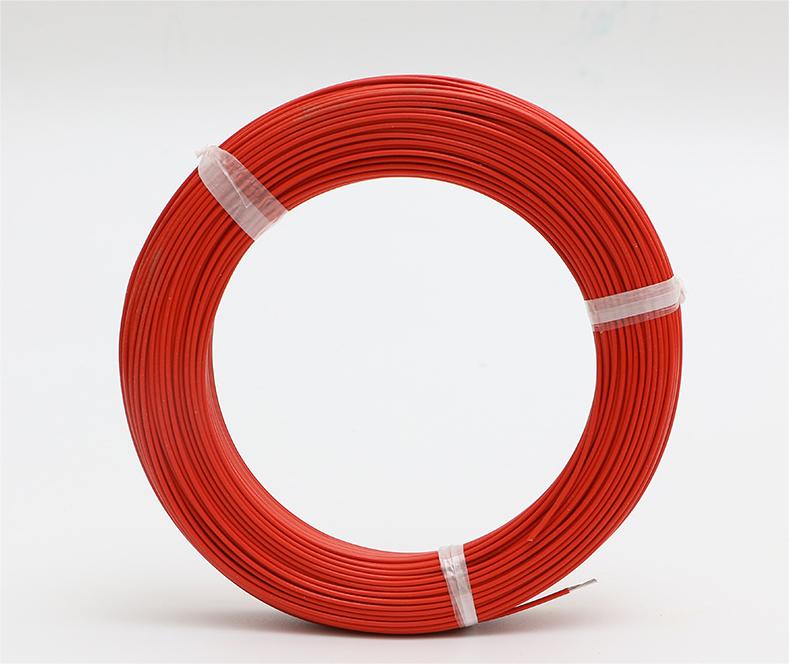
ETFE Wire Temperature Endurance
Regarding thermal resilience, ETFE wire insulation is capable of enduring temperatures up to 150°C. These wires also maintain commendable flexibility and exhibit robust resistance to abrasion. The ETFE wires offered include options with both single and dual insulation layers. They are designed to tolerate extreme temperatures ranging from -65°C to 300°C for durations extending up to 7 hours.
